The majority of individuals depend on mortgages to realize their aspirations while purchasing a property. Behind the scenes, two significant participants in the U.S. housing market are Freddie Mac (Federal Home Loan Mortgage Corporation) and Fannie Mae (Federal National Mortgage Association). In order for lenders to provide loans to homeowners, these government-sponsored enterprises (GSEs) assist in maintaining the flow of mortgage funds. What would happen, though, if these companies were to be privatized?
Discussions of privatizing Fannie Mae and Freddie Mac have created uncertainty. Many homeowners, potential buyers, and investors are now uncertain about the effects of this move on lending standards, mortgage availability, and overall market stability. If you have any doubts concerning this topic, don’t worry. To make things easier for everyone to grasp, we shall simplify.
What Are Fannie Mae and Freddie Mac?
Let’s start with the basics: what are Fannie Mae and Freddie Mac, and why are they important:
The function of Freddie Mac and Fannie Mae is to avoid giving homeowners direct loans. Instead, they buy mortgages from banks and other lenders. They provide lenders extra money by purchasing these loans, enabling them to offer more loans to prospective borrowers. Essentially, Freddie Mac and Fannie Mae preserve the liquidity and accessibility of the mortgage market.
These GSEs buy mortgages, package the securities, and then sell them to investors as mortgage-backed securities, or MBS. This process helps distribute the risk of financing and makes it easier for investors to participate in the housing market.
Government Support: Despite being privately held businesses, Fannie Mae and Freddie Mac are supported by the government and are overseen by a federal charter. As a result, they are seen as low-risk investments, which helps keep mortgage rates affordable.
Why Are We Talking About Privatization?
The idea of privatizing Fannie Mae and Freddie Mac has been around for a long, but the 2008 financial crisis was when it truly took flight. The collapse of the housing market during the crisis caused many groups to suffer large losses. Since the federal government stepped in with a bailout and placed them under conservatorship, they have been under federal control.
Now, some lawmakers and experts believe it’s time to return Fannie Mae and Freddie Mac to private ownership. But why?
Arguments for Privatization:
- Reduce Government Risk: If Fannie Mae and Freddie Mac continue to be supervised by the government, taxpayers will be held accountable for any losses in the future. Privatization would pass this risk to private investors.
- Encourage Competition: Privatization may lead to greater competition in the mortgage industry, which might encourage more innovative and successful lending practices.
- Free Market Principles: Some people believe that the housing market should operate more like a free market and that the government should be less involved.
Arguments Against Privatization:
- Market Stability: Opponents fear that privatization will disturb the mortgage market, resulting in higher interest rates and fewer credit possibilities.
- Affordability Issues: Without government support, Fannie Mae and Freddie Mac may take on less risk, making it more difficult for low- and middle-income families to obtain mortgages.
- Profit Over Public Good: Because they are private companies, Fannie Mae and Freddie Mac may prioritize their own financial interests over providing widespread access to fairly priced housing.
How Could Privatization Affect You?
1. For homebuyers:
- Stricter Lending rules: If these institutions are privatized, they may be less willing to take risks, resulting in stricter lending rules for borrowers. This could involve more paperwork, a larger down payment, or stronger credit scores.
- Higher Interest Rates: In the absence of government assistance, Fannie Mae and Freddie Mac securities may be considered as riskier investments, potentially leading to higher mortgage rates for borrowers.
- Reduced Loan Options: Some loan categories, such as those for first-time homebuyers or low-income borrowers, may become less available.
2. For Current Homeowners:
- Home Values: Stricter financing regulations and higher interest rates may reduce demand for homes, halting price growth or even causing a dip in home values.
- Challenges with Refinancing: Homeowners looking to refinance their mortgages may face stricter rules or higher interest rates.
3. For Investors:
- Market Uncertainty: As a result of privatization, the mortgage-backed securities market may become opaque, thereby impacting investor returns.
- Risks and Opportunities: While some investors may see privatization as an opportunity to profit from a more competitive market, others may be concerned about the possibility of higher risk.
Lessons from the 2008 Financial Crisis
Looking back at the 2008 financial crisis helps you understand the stakes. During this period, Fannie Mae and Freddie Mac faced massive losses due to risky lending practices and the housing market crash. Here’s what we found:
- Government assistance is essential: By stabilizing the market, the federal government was able to avoid a more severe economic downturn.
- Over-leverage is risky: Both companies’ financial problems were aggravated by their excessive exposure to high-risk loans.
- Cheap Housing Is Important: The crisis demonstrated how critical it is to have affordable housing available even during difficult economic times.
It will be essential to make sure that the lessons learned from 2008 are not lost if privatization occurs.
What Could Privatization Look Like
Although there isn’t a formal plan yet, a number of ideas have been discussed:
- Gradual Transition: Reducing government interference over time would allow the market to adjust.
- Public-Private Partnerships: Some suggest a hybrid strategy in which Freddie Mac and Fannie Mae operate more like private enterprises while getting government aid.
- Complete Privatization: This would require cutting off all government funding and converting the institutions into entirely private firms.
There are trade-offs and difficulties associated with each alternative, and policymakers will need to carefully consider the possible outcomes.
Tips for Navigating the Uncertainty
- Stay Up to Date: Stay informed on Freddie Mac and Fannie Mae. You can make better financial decisions if you are aware of the latest developments.
- Work with a Trusted Advisor: Whether you’re a buyer, homeowner, or investor, a knowledgeable real estate agent, mortgage broker, or financial consultant can provide valuable assistance.
- Prepare for Higher Rates: Start saving money for potentially higher monthly payments if privatization raises interest rates.
- Strengthen Your Financial Profile: Even in a more stringent lending environment, reducing debt, increasing your down payment, and improving your credit score can all help you get approved for a mortgage.
Conclusion
The potential privatization of Freddie Mac and Fannie Mae is a difficult and complex issue. One thing is certain, even if it is difficult to predict how it will unfold: changes to these institutions will have a significant impact on the housing market and the whole economy.
Homeowners, buyers, and investors should stay informed and prepared for any changes as the talks progress. You’ll be better equipped to deal with whatever occurs next if you understand the roles of Fannie Mae and Freddie Mac, as well as the consequences of privatization.




